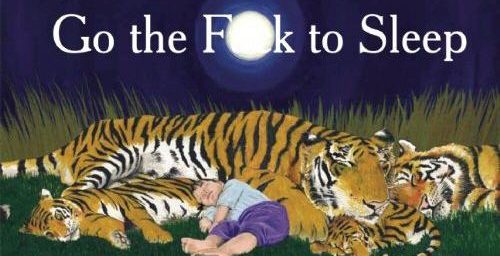Clinton’s ‘My Life’ Sells Out — In More Ways than One
WaPo – Clinton’s ‘My Life’ Sells Out First Printing
Bill Clinton’s “My Life” needed just one month to sell out its initial printing of 1.5 million, publisher Alfred A. Knopf announced Friday. The audio version has already sold 150,000 copies, far more than most books in that format.
The former president received a reported $10 million for “My Life,” which Knopf published June 22 with a suggested price of $35. The book sold 400,000 copies on the first day alone, believed to be a record for nonfiction, and more than 2.5 million copies are now in print.
Impressive. I don’t know if these figures represent books merely “sold” to bookstores and wholesalers (which can be returned for a full refund) or if they are actually out the door to retail customers. Still, considering that, by all accounts, this is a long, ponderous, rambling book these figures–especially when combined with the huge sales of Hillary Clinton’s tell-nothing book last year– demonstrate that fascination with all things Clinton is unabated.
Update: NYT – Changing His ‘Life’ to Suit British Law [RSS]
Former President Bill Clinton does not like Kenneth W. Starr, the former independent counsel whose investigation of Mr. Clinton’s sexual liaisons led to his impeachment. But he might still fear him, at least in Britain. Before publication in June of the British edition of his memoir, “My Life,” Mr. Clinton authorized changes to a dozen or more passages, most of them related to Mr. Starr, apparently in an attempt to make the book and Mr. Clinton less vulnerable under Britain’s tough libel laws.
Most of the changes center on what Mr. Clinton portrays as Mr. Starr’s attempts to persuade potential witnesses to lie about the activities of the former president and his wife, Hillary Rodham Clinton, now the junior senator from New York. For example, in the United States edition, published by Alfred A. Knopf, a division of Random House Inc., Mr. Clinton speaks of Mr. Starr’s “continuing efforts to coerce people into making false charges against Hillary and me, and to prosecute those who refused to lie for him.” In the British edition, published by Hutchinson, also part of Random House Inc. and its German parent, Bertelsmann, the word false was deleted and the final clause was changed to “and to prosecute those who refused to tell him what he wanted to hear.” Officials at the publishing house acknowledged the changes but declined to comment further. “I think we’ll let the work speak for itself,” said Jon Fine, a vice president and associate general counsel at Random House Inc.
***
Britain’s libel laws are almost the opposite of those in the United States. In Britain the burden of proof is on the defendant, with the law essentially assuming that a published statement is false and requiring proof that it is true. In the United States, however, if the plaintiff is a public figure, like Mr. Starr, he or she must prove both that what was reported was false and that the publisher either knew that or printed the statements with reckless disregard for their possible falsehood.
Interesting. Proving that Starr tried to coerce witnesses to lie about him would indeed be difficult, since it (US version: is a damnable lie) (British version: is quite likely untrue) . That said, while I believe our system has gone too far in weakening protection against defamation of character for public figures, I prefer the U.S. system. The burden of proof should always be on the plaintiff.
“My Life” has been a big seller in Britain, as in the United States, where it has held the No. 1 spot in nonfiction on the New York Times best-seller list since July 11, the date the list reflected the book’s first week of sales. (“My Life” was published June 22.) Yesterday Knopf said the book had sold 1.5 million copies in the United States and was in its fourth printing. But the book’s momentum has slowed, perhaps inevitably, since it sold 400,000 copies on its first day. In addition to Britain, the United States and Canada, “My Life” has been published in 31 countries or territories and is selling well around the world. But it has also been subject to piracy, most notably in China, where, much to the dismay of its publisher, an unauthorized version has gone on sale.
The Times of London reported this week that a Mandarin translation of “My Life” on sale in China included several passages that were not in English-language editions, including statements in which Mr. Clinton tells of his appreciation of Mao Zedong. The changes start in the first sentence of the book, which in the Chinese version says that the town of Hope, Ark., where Mr. Clinton was born, has “good feng shui.”
Classic Clinton.
Mr. Fine, the Random House lawyer, said the company intended “to take all necessary steps to combat this sort of piracy.” Mr. Barnett said Mr. Clinton was eager to publish an authorized version of his book in China. “We want to be sure, however, that any edition published in Chinese is complete, accurate and unchanged,” he added. Last year Simon & Schuster withdrew publication rights for Mrs. Clinton’s autobiography, “Living History,” from its Chinese partner, Yilin Press, a state-owned publisher. The withdrawal came after Simon & Schuster discovered numerous unauthorized changes, including the deletion of material critical of the Chinese government.
Classic China.





